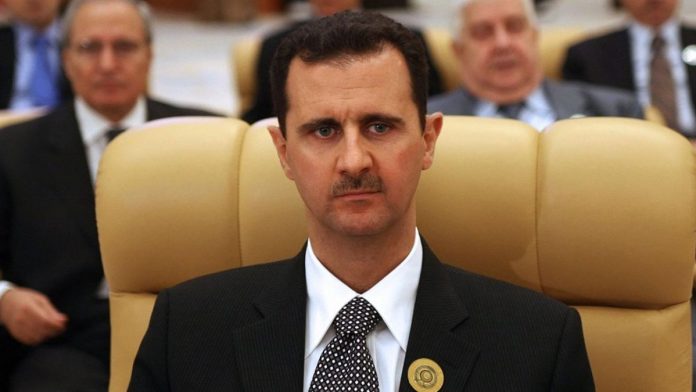Syrian President Bashar al-Assad has reportedly fled the country following a swift and extensive rebel offensive that has captured significant territory, including major cities and the capital, Damascus. The developments come after more than five decades of Assad family rule and over a decade of civil war.
Rebel offensive gains momentum
The Islamist-led coalition Hayat Tahrir al-Sham (HTS), along with allied factions, launched a lightning campaign on 27 November. Their advances have resulted in the fall of key cities such as Aleppo, Homs, and Hama, as well as extensive parts of southern and eastern Syria. Early Sunday, HTS declared Damascus “free” after government forces withdrew from the capital.
Rami Abdel Rahman, head of the Syrian Observatory for Human Rights, confirmed that Assad left the country via Damascus International Airport before security personnel vacated the facility. Unverified reports suggest the aircraft carrying Assad either crashed due to mechanical failure or was shot down over northwestern Syria.
Residents in Damascus described the atmosphere as tense and chaotic. Crowds rushed to withdraw cash and secure supplies, and traffic jams gridlocked the city. In stark contrast, in some suburbs, protesters dismantled statues of Hafez al-Assad, Bashar’s father and predecessor.
Prime minister Jalali signals readiness for transition
The Syrian prime minister said he will not leave Damascus He said he is staying to ensure that the institutions of power work. He also said he will cooperate with any government that Syrians elect.
The head of the Syrian government promised to be at the Council of Ministers in the morning to hand over power peacefully.
“The Council of Ministers has extended its hand to every Syrian citizen who is concerned about the future and decisions of this country, and I ask citizens not to damage public and state property,” he concluded
HTS leader Ahmed al-Sharaa, formerly known as Abu Mohammed al-Jolani, directed rebel fighters to avoid public institutions in Damascus. These, he stated, would remain under the supervision of Prime Minister Jalali until formally transferred.
Military retreat and hezbollah withdrawal
The Syrian military has experienced widespread losses, retreating from strongholds across the country. In the southern Daraa province, the cradle of the 2011 uprising, local fighters have taken over public facilities. Similar retreats have been observed in Sweida and Quneitra near the Israeli-occupied Golan Heights. Thousands of Syrian soldiers, including officers, have reportedly fled into Iraq via the Al-Qaim border crossing.
Lebanese militia Hezbollah, a key Assad ally, has also withdrawn its forces from critical positions in Damascus and Homs. According to a source close to Hezbollah, some fighters have relocated to Latakia in Syria, while others have returned to Lebanon’s Hermel region.
The Syrian defence ministry, however, has denied reports of these withdrawals, claiming that the military is “redeploying and repositioning” to reinforce defensive lines.
The Israeli army confirmed the deployment of forces in a buffer zone on the border with Syria “to ensure the security of citizens and settlements in the Golan Heights” due to the threat of militant infiltration. The Israeli military emphasised that it does not interfere in the events taking place in Syria.
Humanitarian impact
The rebel offensive has caused significant human suffering. The Syrian Observatory for Human Rights estimates that at least 826 people, including 111 civilians, have been killed since the offensive began. The United Nations reports that the violence has displaced 370,000 people.
HTS, once linked to al-Qaeda, has attempted to soften its image by reassuring minority communities in captured areas of their safety. Despite these assurances, concerns persist over the group’s extremist roots.
International reactions
The situation has drawn a cautious response from the international community. Outgoing US Secretary of State Antony Blinken has called for a political resolution, while Russian, Iranian, and Turkish officials met in Qatar to discuss Syria’s future. Iran’s Foreign Minister Abbas Araghchi stressed the importance of dialogue between the government and legitimate opposition factions. Russia’s Foreign Minister Sergei Lavrov, meanwhile, warned against allowing “terrorist groups” to gain control of Syrian territory.
Turkish President Recep Tayyip Erdogan called for an end to Syria’s suffering, stating, “Syria is tired of war, blood, and tears.” US President-elect Donald Trump signalled that the United States should avoid involvement in Syria’s ongoing conflict.
Prisons and public reactions
As rebel forces entered Damascus, they announced the liberation of the infamous Sednaya prison, known for its severe human rights abuses under the Assad regime. Witnesses reported the release of thousands of detainees held there. In other areas, abandoned military equipment, including tanks, was set ablaze.
The rebel leadership has pledged to protect public property and civilian institutions. Local fighters in Daraa and Sweida have reportedly assumed responsibility for securing essential facilities after government forces vacated their positions.
Uncertain future
The rapid collapse of Assad’s forces signals a dramatic turning point in Syria’s prolonged conflict. However, questions remain about Assad’s fate, the role of HTS, and the prospects for long-term peace. International stakeholders have called for urgent political dialogue to prevent further chaos and ensure a sustainable resolution to Syria’s challenges.
